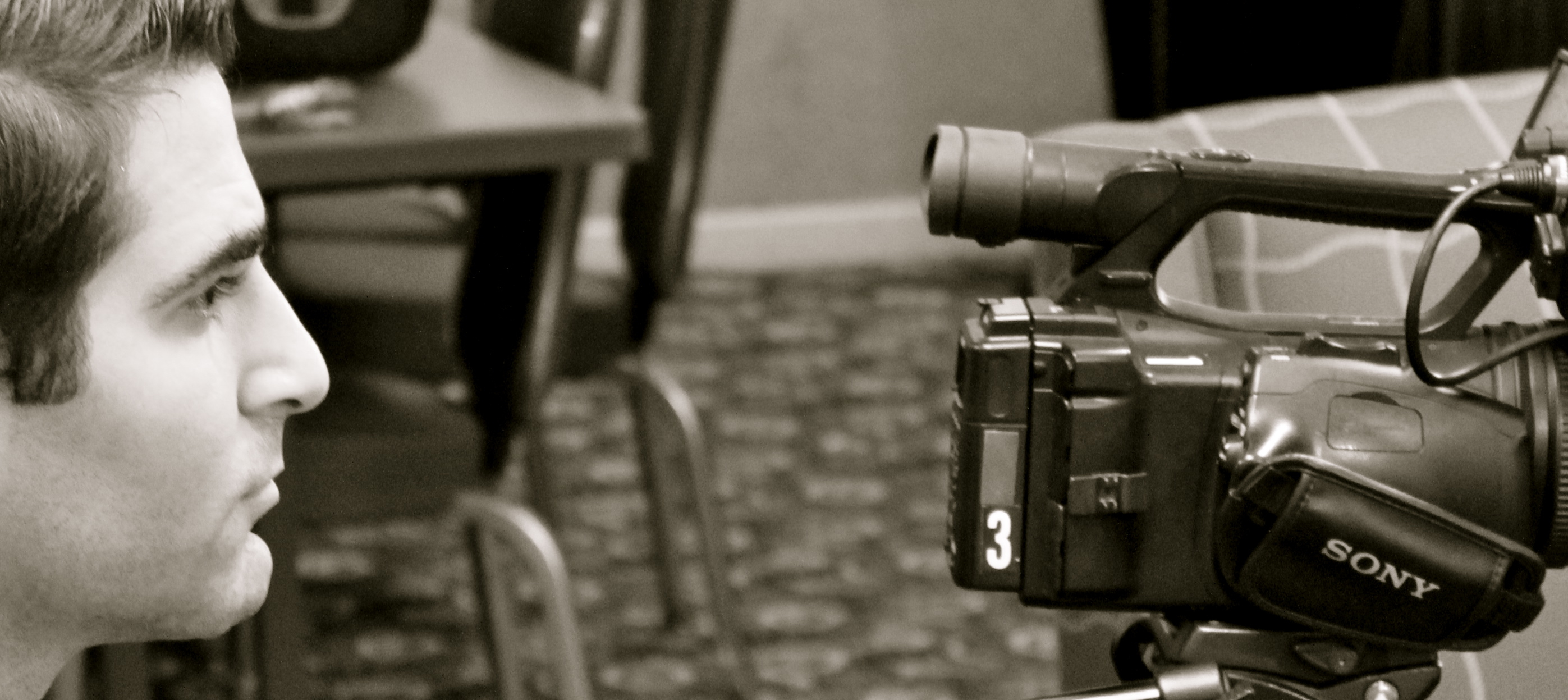The idea behind this — beyond impressing people so they hire me — is to reconnect the digital world with the tangible one. Each Business Card Story is, in my mind, an authentic work of art. The cards may not fetch much (read: anything) in an auction, but they are true, first-edition bursts of creativity. It’s cool to hold something in your hand and to know it’s the only one that exists. It’s even cooler when the words are pretty.
I try to make them pretty.
You can find more #businesscardstories by following me at @BusinessCardStories on Instagram.
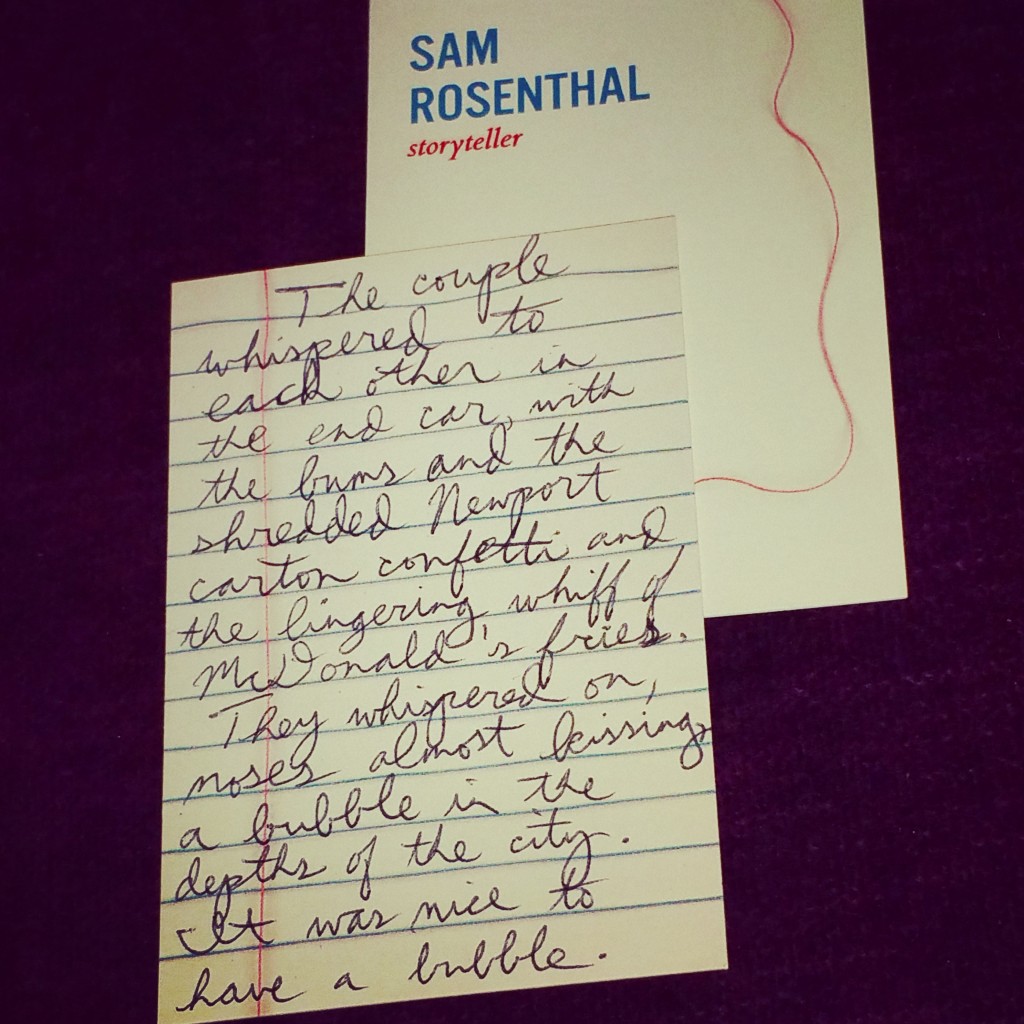
“The couple whispered to each other in the end car, with the bums and the shredded Newport carton confetti and the lingering whiff of McDonald’s fries. They whispered on, noses almost kissing, a bubble in the depths of the city. It was nice to have a bubble.”
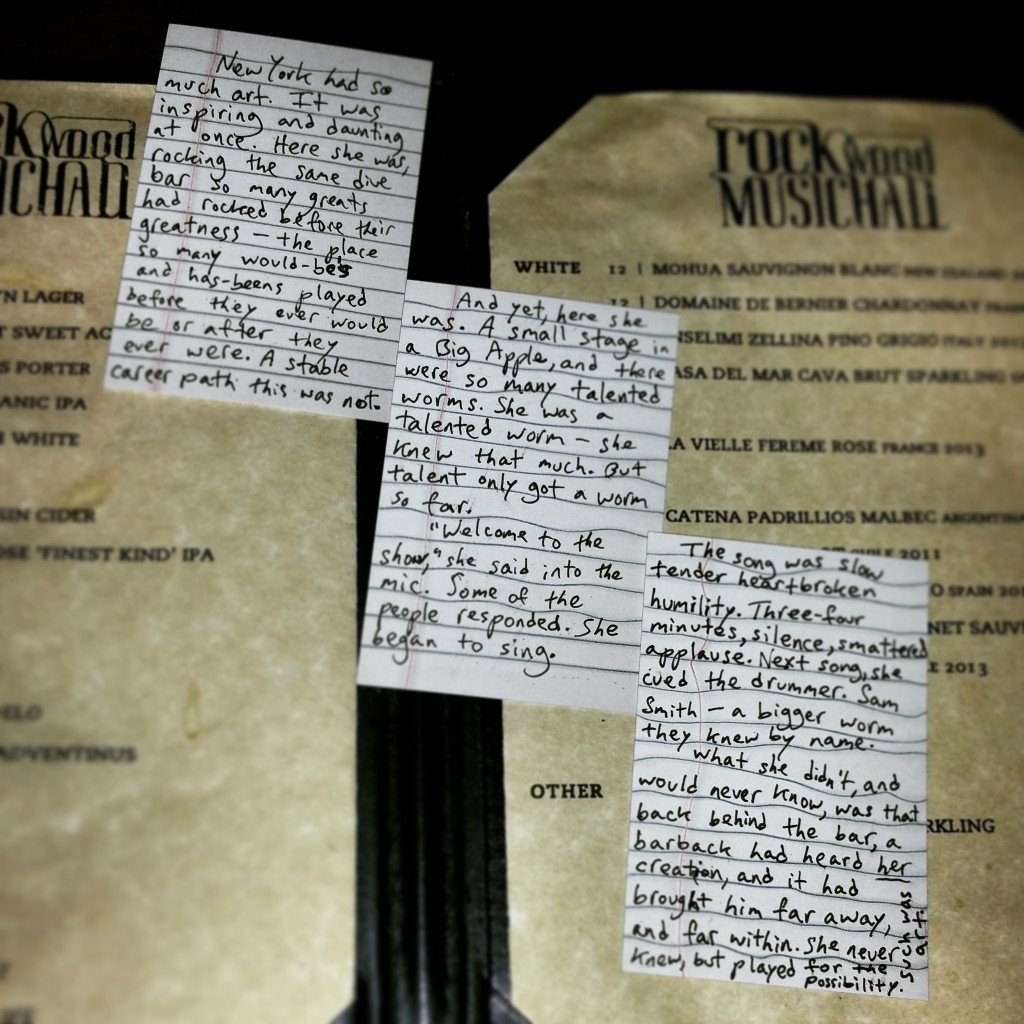
New York had so much art. It was inspiring and daunting at once. Here she was, rocking the same dive bar so many greats had rocked before their greatness – the place so many would-be’s and has-beens played before they ever would be or after they ever were. A stable career path this was not.
And yet, here she was. A small stage in a Big Apple, and there were so many talented worms. She was a talented worm – she knew that much. But talent only got a worm so far.
“Welcome to the show,” she said into the mic. Some of the people responded. She began to sing.
The song was slow tender heartbroken humility. Three-four minutes, silence, smattered applause. Next song, she cued the drummer. Sam Smith – a bigger worm they knew by name.
What she didn’t, and would never know, was that back behind the bar, a barback had heard HER creation, and it had brought him far away, and far within. She never knew, but played for the possibility. Such was art.
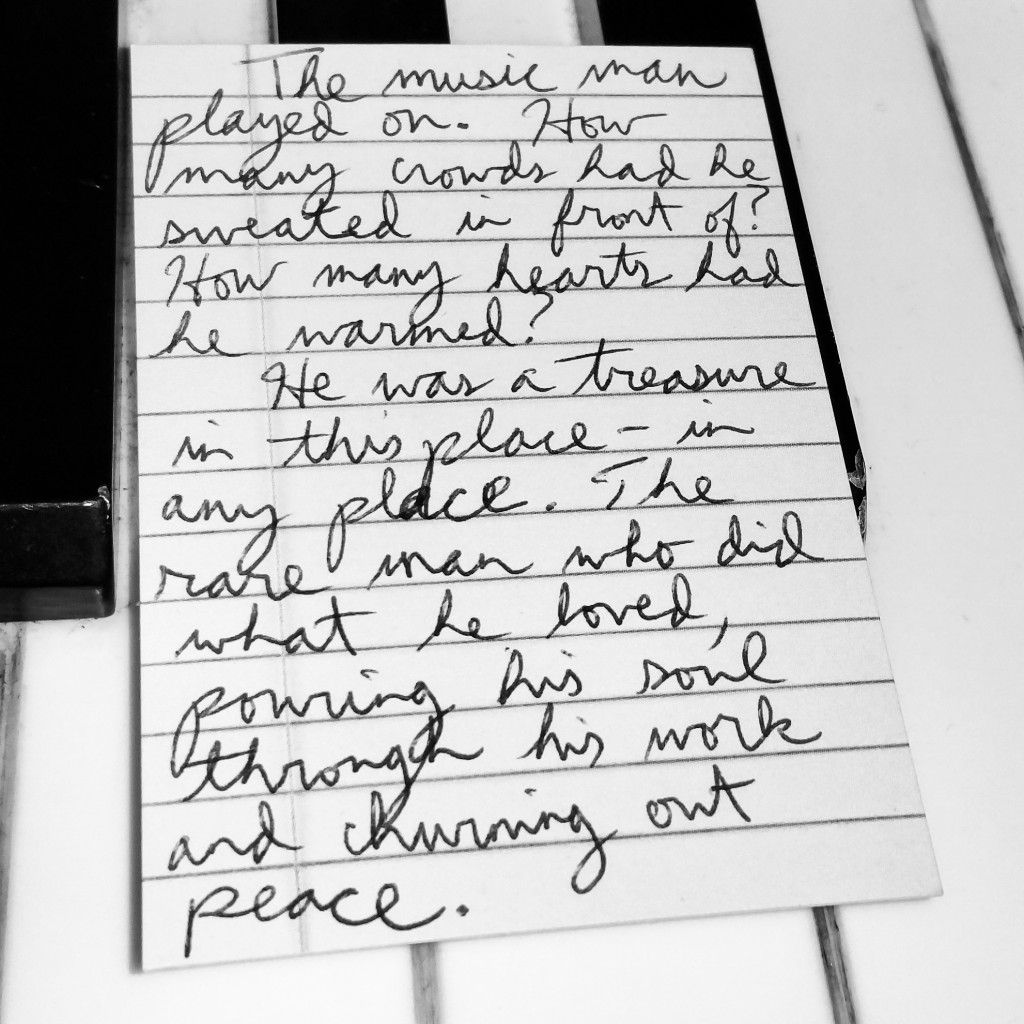
“The music man played on. How many crowds had he sweated in front of? How many hearts had he warmed?
He was a treasure in this place — in any place. The rare man who did what he loved, pouring his soul through his work and churning out peace.”
(Inspired my Human Comedy story “Piano Man”)

Have? WHAT DO YOU HAVE?
What a strange notion this was
this Having.
How the mind comforted itself on the things it “HAD.”
THOSE PHANTOM PILLOWS.
The world had you. / You had the world.
That was the only having that mattered.
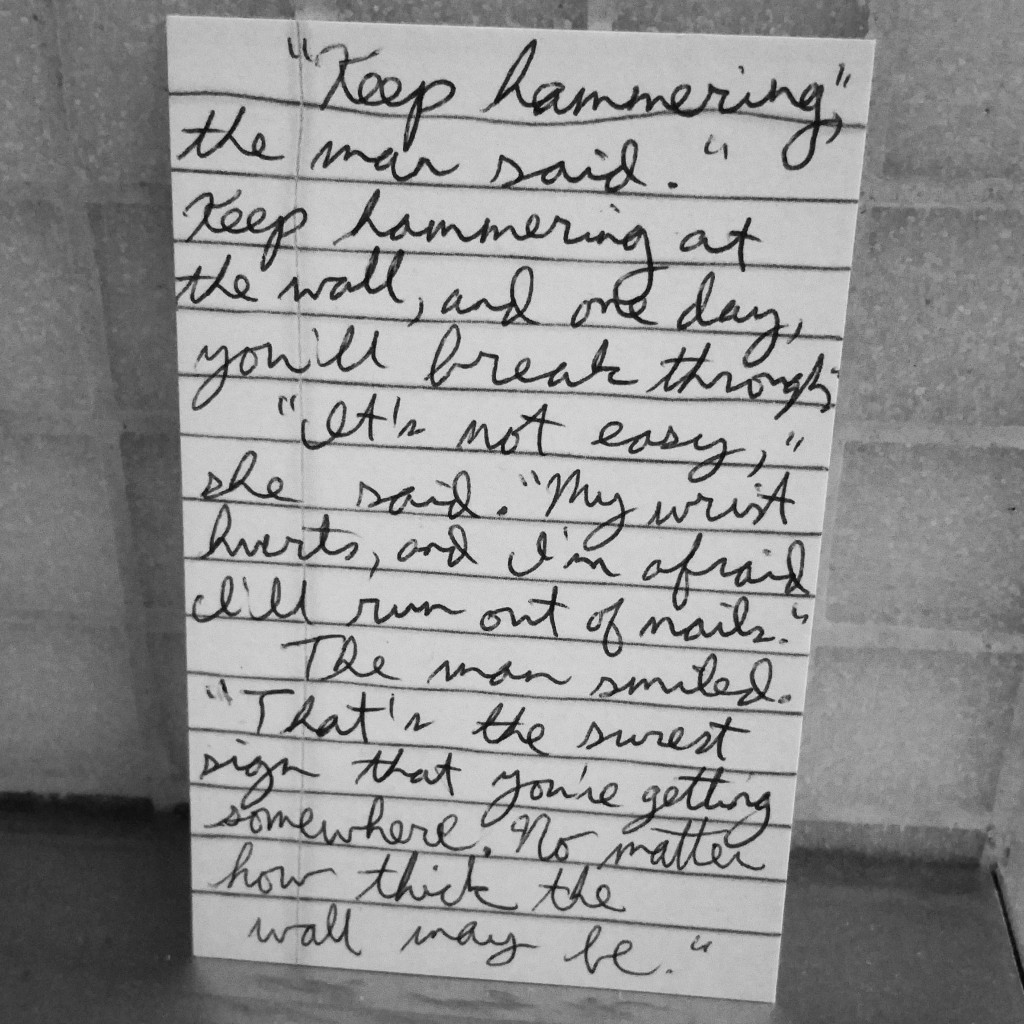
“Keep hammering,” the man said. “Keep hammering at the wall, and one day, you’ll break through.”
“It’s not easy,” she said. “My wrist hurts, and I’m afraid I’ll run out of nails.”
The man smiled. “That’s the surest sign that you’re getting somewhere. No matter how thick the wall may be.”

The bar was conversation. Outside — they didn’t want to be outside. Not out there — your toes could freeze. But in here, with the fermented grapes and the soft light and the Motown playlist … in here, they wanted to be.

(Translated): They became friends at sea. It was easier there. The wine helped, too — the wine, and the music, and being seated next to each other two nights in a row.
Maybe they would see each other again in the future, and maybe not. No matter. It had been a pleasure.
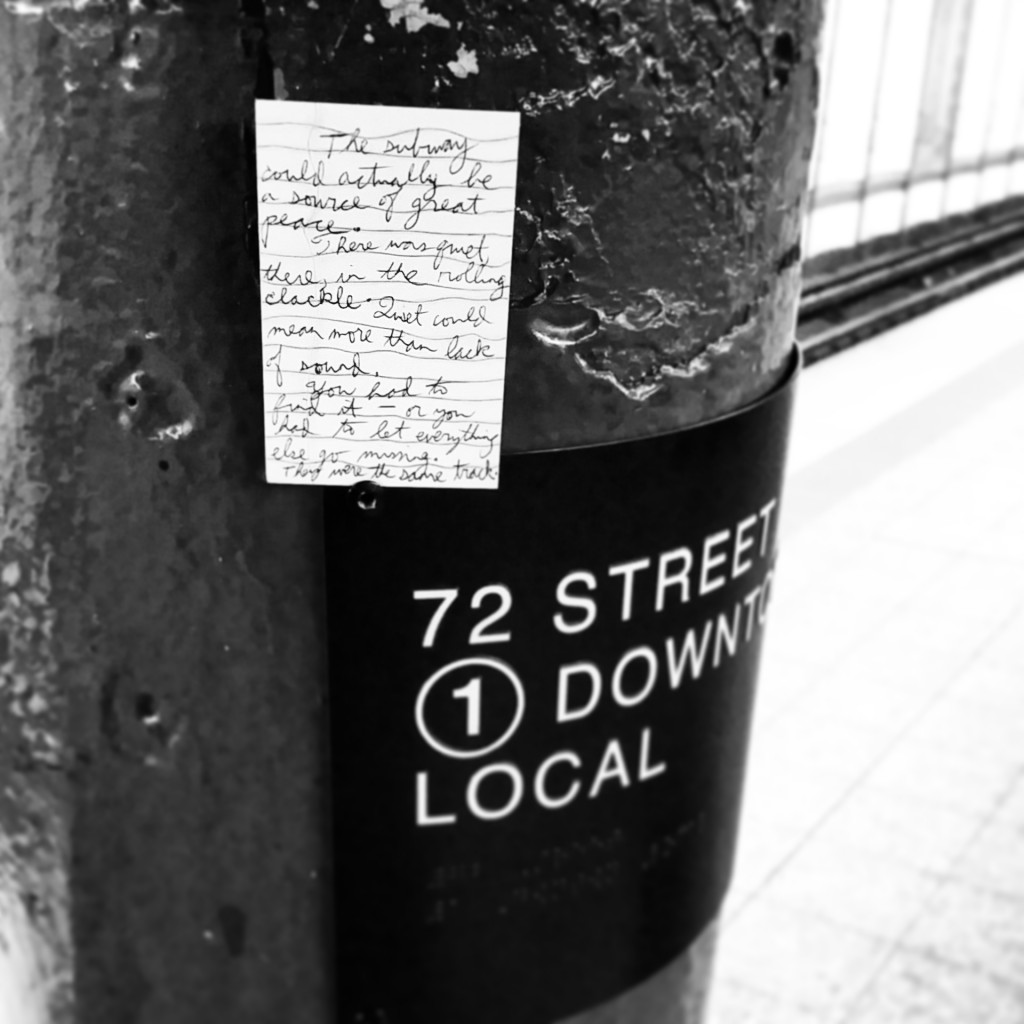
The subway could actually be a source of great peace.
There was quiet there, in the rolling clackle. Quiet could mean more than lack of sound.
You had to find it — or you had to let everything else go missing. They were the same track.

You could tell how long they’d been friends. Anyone could tell. The way they talked — nothing superficial, nothing bullshit. Feeling. Heart. Barely a moment of silence. They had been friends so long, and still had so much to say.

A rejection letter. His second.
The man shook his hand. “Congrats.”
“Tell me when you get 120,” said the lady. “And don’t you get sad.”
The writer felt more accepted already.

Happiness. She wanted a story about happiness. He told her to look around and open her senses to the light, the sound, the taste. She was at dinner with a friend, healthy, warm, relaxed and free.
Was that not happiness?
